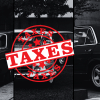Three questions for the new budget

The nation is engrossed in politics during the budgetary season, perhaps with the understanding that the course of politics shapes economic outcomes. Since the budget is a political process, the rules of the budgetary game are set within that continuum. Nonetheless, the new budget begs three questions which are dominating public parleys.
Will the cost of living go down?
People have been suffering greatly in recent times due to the soaring prices of all kinds of food and non-food items – be it oil, soap, clothing, educational materials or transportation. As a result, the majority of the population in low- and limited-income brackets are having to cut down on expenses to run their families.
The government said prices had to be "adjusted" due to the global situation against the backdrop of the pandemic and the Russia-Ukraine war, and that the prices would be revised as the situation "normalised." For example, the government at one go hiked the prices of all types of fuels by 42.5-51.7 percent in August last year. But when oil prices were hovering between $70 and $80 per barrel in the international market for a long time, there was no sign of downward price adjustment in the domestic market as the government had promised. In fact, prices of major commodities – soybean oil, palm oil, sugar, wheat flour, onion, lentils, etc – fell significantly in the international market, but there has been no relief for consumers in Bangladesh. In addition, we are also hostage to price-fixing by a powerful rentier nexus of intermediaries who enforce exorbitant differences between the farm gate and the retail prices in absence of regulatory oversight.
If the budgetary proposals raise taxes on essentials, how would the ordinary people, who are already plagued by the cost-of-living crisis, bear the burden? Rather than increasing the base and reducing the loopholes of income tax, if higher value-added tax (VAT), which applies across the board, is imposed on daily items, how would most people survive? Besides, if the import duty on food items is raised, would the next budget not make the cost of living more excruciating?
Businesses, particularly small and micro-enterprises, too are adversely impacted by price hikes. For example, domestic yarn has become costlier due to the rise in gas and electricity prices. On the advice of the Bangladesh Bank, banks have fixed the exchange rate, yet the price of the US dollar is rising against the taka every day, though within that stipulated range, escalating the cost of commodities.
If the proposed budget imposes further tax on, say, construction materials like rod, cement, bricks, etc, which saw a 40 percent increase already, how would that impact the existing stagnant private investment? According to the Bangladesh Bureau of Statistics (BBS), private investment has fallen by 0.88 percentage points to 23.64 percent of GDP in FY2022-23, after remaining almost stagnant for at least seven years. Investment also fell due to negative growth in imports of capital equipment, stemming from the inability to open letters of credit (LCs) due to the dollar crisis. If the situation does not improve quickly, new job creation will stall, and inflationary pressure will not let up either.
Will the budget stave off cash shortage?
Low-income households are in shortage of money. According to the BBS, wages have grown at a lower rate than inflation every month for over a year. The wage growth rate was 7.23 percent in April this year, against the inflation rate of 9.24 percent. The weighted wage rate is determined by 145 low skill occupations of the poor and lower middle class, illustrating the pressure being put on these income groups. Savings, income and employment of the lower-middle and middle classes have been hit hard, pushing them into poverty. About nine percent (i.e. more than 15 million) of the people below the poverty line in Bangladesh are newly poor, per Bangladesh Institute of Development Studies (BIDS) data. In the absence of employment in the formal sector, they were forced into self-employment; the rate of self-employment among the poor grew to 38.56 percent in 2022 from 33.60 percent in 2019.
Similarly, the pace of poverty reduction has slowed down, despite questions about the BBS definition of poverty used in the survey. According to the BBS, poverty has decreased by an average of 0.93 percentage points per annum over the last six years (2016-2022). Between 2010 and 2016, poverty declined by 1.3 percentage points, on average, every year.
Biased policies are the main cause of inequality of income and wealth. The Gini coefficient reached 0.499 in 2022 from 0.482 in 2016 and 0.458 in 2010, demonstrating a continuous upward trend over the last 12 years.
The nation is eagerly waiting for actions on tax evasion and exemptions, including import duty, as research has shown that most money is laundered through import and export. Or will the government opt out for the easiest route of taxing the voiceless, low-income groups, while giving concessions to the rich, as has been speculated by the media?
Would the government bring any change in its faulty and fragmented social safety net programmes, marred by inclusion and exclusion errors, to institute a life cycle-based universal social security system to supply cash to the people in need, adhering to the constitutional mandate?
The shortage of dollar and central bank restrictions to reduce pressure on the dollar have reduced imports of key raw materials. As a result, during July-March, LCs for the import of industrial capital machinery shrunk by 56 percent and imports of industrial raw materials dropped by 30 percent. How would the budgetary proposals be harmonised with the monetary policy for setting up industries, business expansion and renovation initiatives, which have also dwindled due to want of cash?
The government is in dearth of money. For example, only 41.65 percent of the Annual Development Programme (ADP) was implemented in the first nine months of FY2023. The government is struggling to pay for imported fuel due to the dollar crisis, while the forex reserves are also dangerously low. The Bangladesh Power Development Board is under pressure to reduce the cost, including the huge capacity charges, which resulted from collusive contracts. While the budgetary question of shoring up cash for not defaulting on payments remains, there are fears that the clientele may intensify bargains for budgetary resources with the banking resources increasingly drying out, amid the banking sector exhibiting the highest rate of default after the crisis-ridden Sri Lanka.
What about the runaway debt?
The government's loan from the central bank is increasing at an abnormal rate. In the last five years, the government's borrowing from the central bank has grown by 927 percent. In just seven years, the total foreign debt more than doubled to reach $95.23 billion, rising from $41.17 billion in 2015-16. Foreign debt in the private sector also peaked to around $26 billion till June 2022. Forex reserves may continue to shrink in the near future due to the large deficit in the financial account of balance of payments. Would the budgetary proposals be prudent enough to make a dent in the payment of principal and interest, which is almost 20 percent of the operating expenditure?
The only option is to increase income tax and reduce tax exemptions and tax avoidance. The nation is eagerly waiting for actions on tax evasion and exemptions, including import duty, as research has shown that most money is laundered through import and export. Or will the government opt out for the easiest route of taxing the voiceless, low-income groups, while giving concessions to the rich, as has been speculated by the media?
John Maynard Keynes, in his 1923 essay "A Tract on Monetary Reform," wrote, "The long run is a misleading guide to current affairs. In the long run, we are all dead." Perhaps he had in mind the adage, "A stitch in time saves nine."
Dr Rashed Al Mahmud Titumir is professor and chairman of the Department of Development Studies at Dhaka University.

 For all latest news, follow The Daily Star's Google News channel.
For all latest news, follow The Daily Star's Google News channel. 











Comments